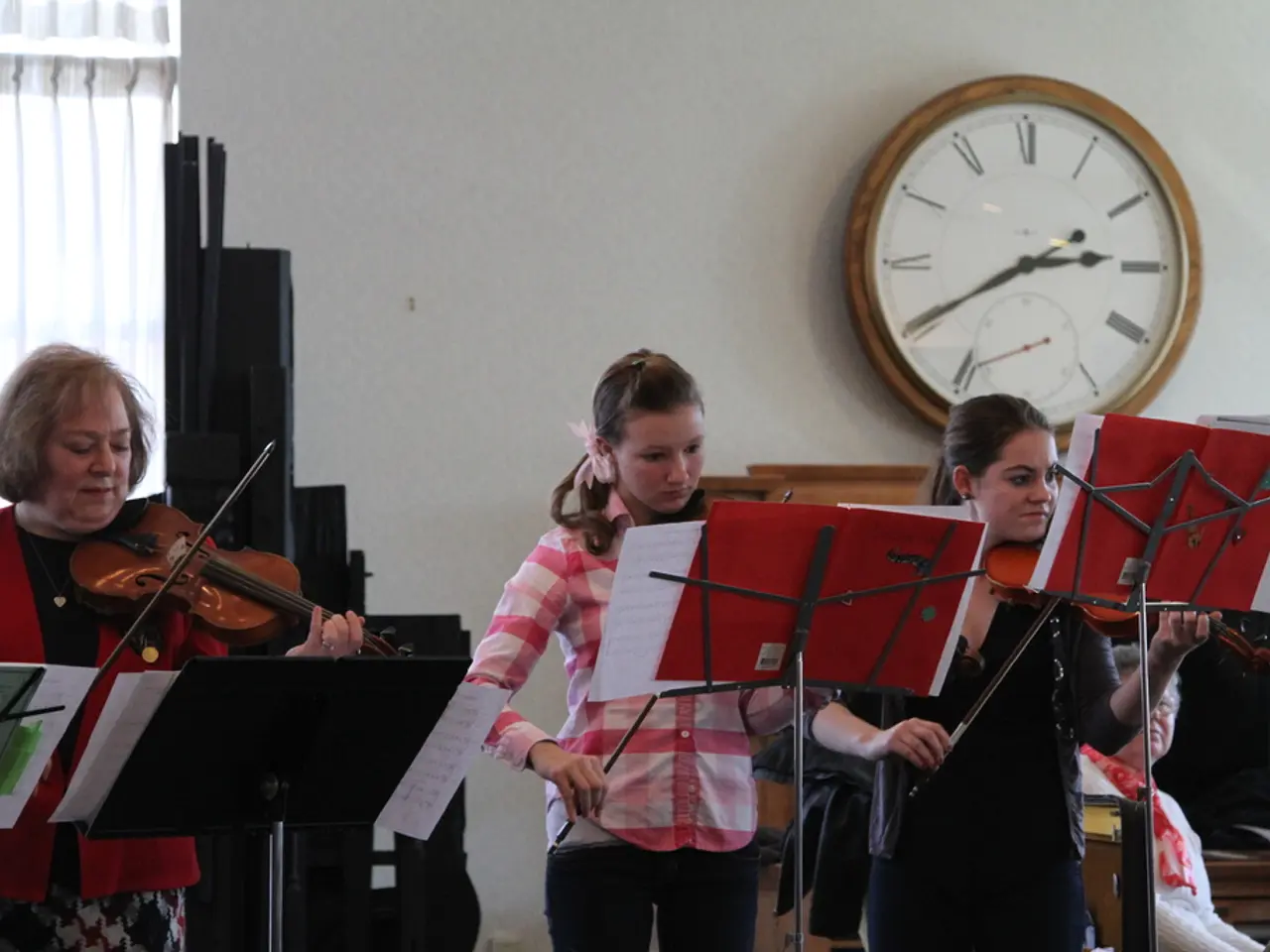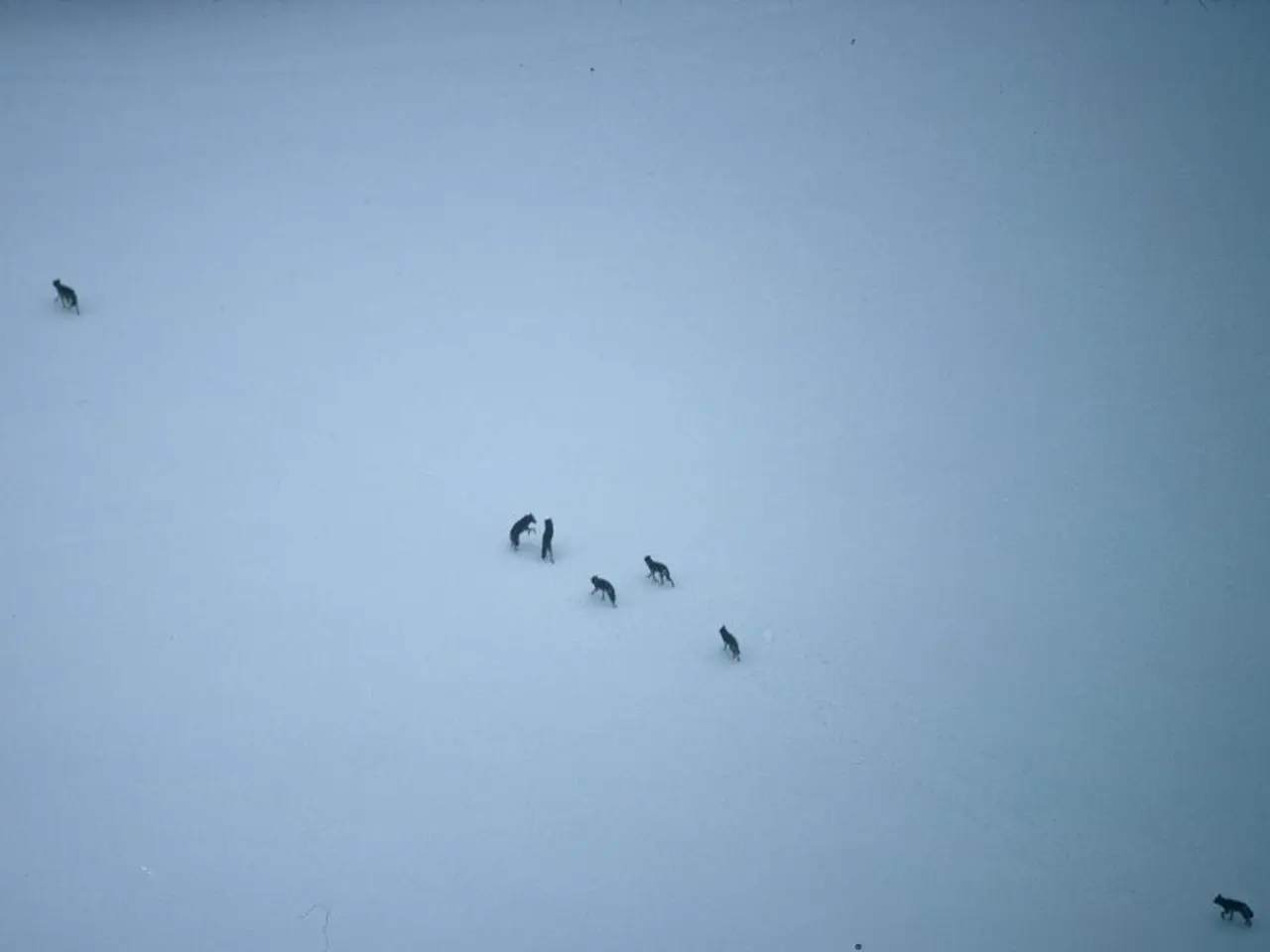Experience the poignant melodies crafted within Auschwitz, as they resonate again after an 80-year absence
A groundbreaking documentary titled "The Lost Music of Auschwitz" is set to air on 20 January, bringing to light previously unheard music composed by musicians imprisoned at the Auschwitz concentration camp during World War II.
The documentary is the culmination of an eight-year mission to piece together the forgotten fragments of music left behind in the concentration camp. British composer and conductor Leo Geyer, who spent eight years searching through the archives of the Auschwitz-Birkenau Museum, carefully reconstructed these fragments into scores that could be read and performed today.
One of the most intriguing stories to emerge from the documentary is that of Alma Rosé, the niece of Austrian composer Gustav Mahler. Alma Rosé played a significant role during the Holocaust as the conductor of the Women's Orchestra of Auschwitz, a forced ensemble made up of female prisoners at the camp. Her leadership of this group is notable because she was a professional musician, closely connected to Mahler, a famous composer. Her role was both to maintain the orchestra's musical standards and, in doing so, possibly to help members of the group survive by being in the orchestra rather than subjected to harsher camp labor or death.
The Women's Orchestra of Auschwitz became one of the most well-known musical groups at the camp, symbolizing the tragic intersection of art and survival in the concentration camps. The music in the documentary will be performed by Leo Geyer and his orchestra, and will be heard exactly as it would have sounded at Auschwitz, in some cases for the first time in 80 years.
The filming of the ensemble performances took place at Chatham Docks, with Leo Geyer using instruments that would have been available in the camp, such as the accordion and tenor horn. The documentary also includes powerful interviews with some of the last remaining survivors and special performances from Leo Geyer's orchestra.
Leo Geyer commented that he is pleased to share this music to commemorate 80 years since the liberation of Auschwitz. The music in the documentary is a testament to the resilience of the inmates at Auschwitz, as they found solace and strength in music even in the direst of circumstances.
The events of the Holocaust have inspired countless films, including "The Pianist," "Schindler's List," and the disturbing 2023 film "The Zone of Interest." "The Lost Music of Auschwitz" adds a new layer to our understanding of this dark period in history, revealing how musicians interred at Auschwitz rebelled with secret performances as an act of defiance. The documentary airs at 9pm on 20 January on Sky Arts, Freeview, and NOW.
The documentary, "The Lost Music of Auschwitz," showcases the reconstructed scores of music composed by musicians imprisoned at Auschwitz, illuminating a hidden aspect of entertainment in the concentration camps. Alma Rosé, a significant figure in the Holocaust, led the Women's Orchestra of Auschwitz, a group that symbolized the intersection of art and survival, even as they performed music in the most challenging circumstances.








